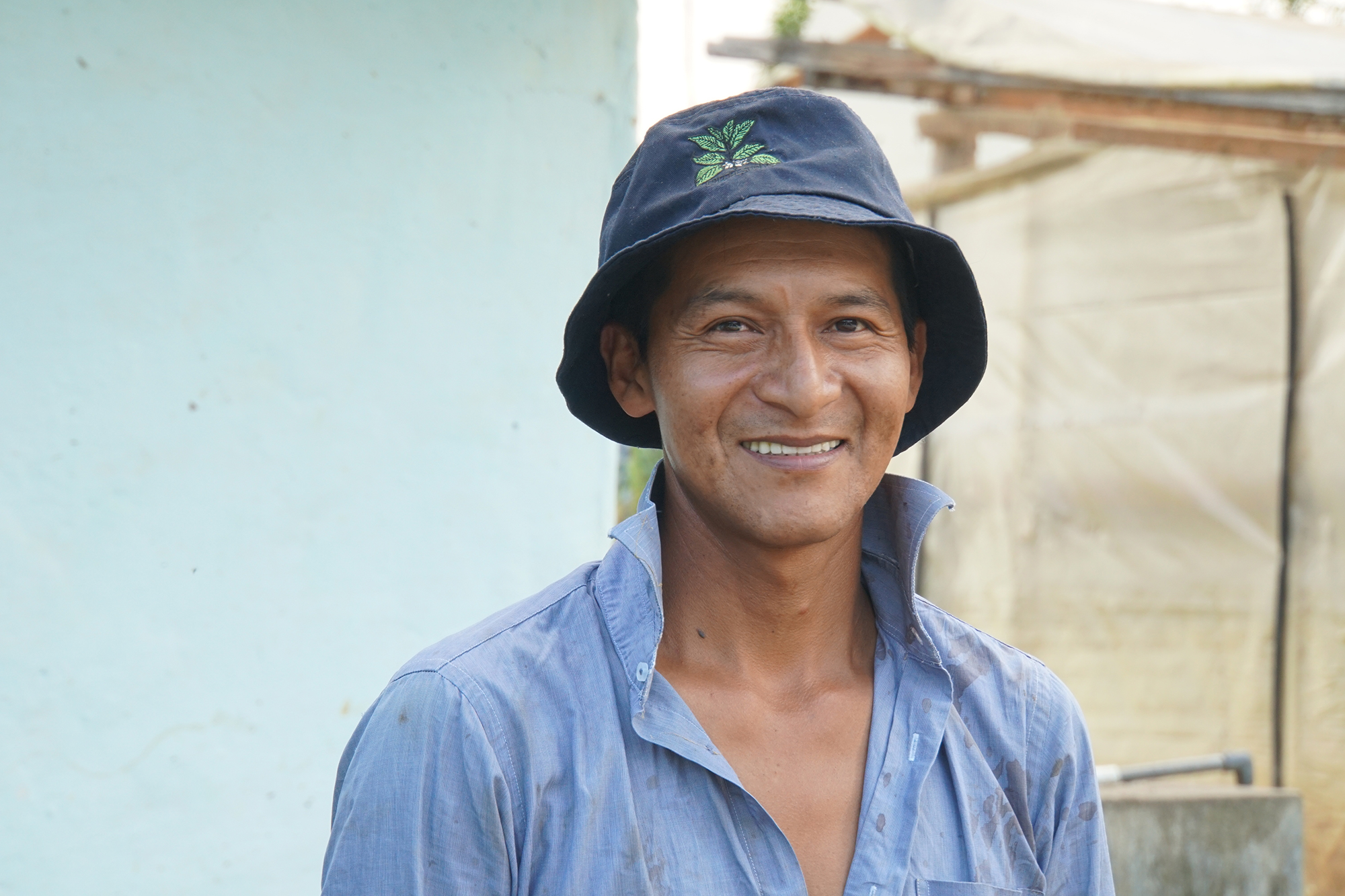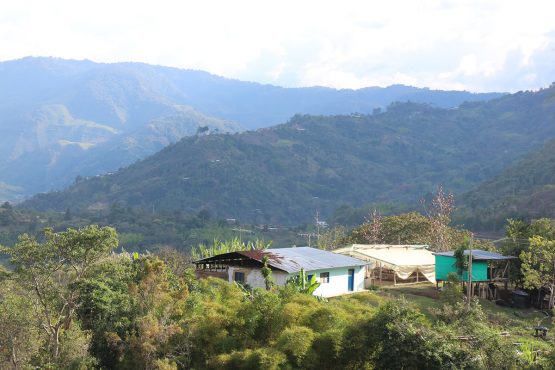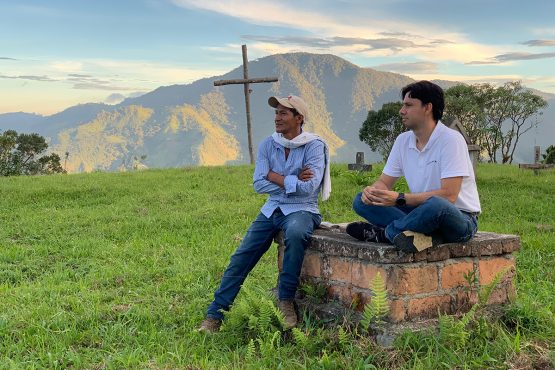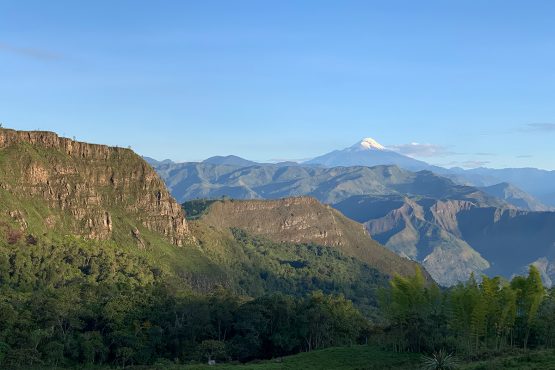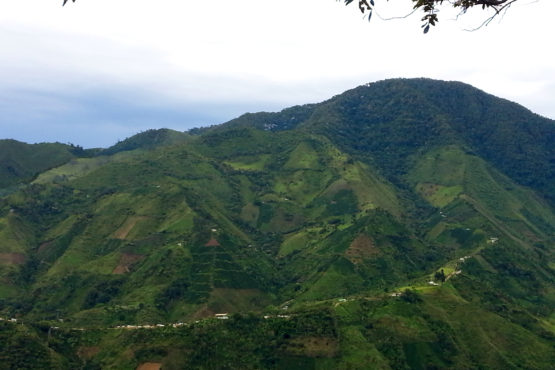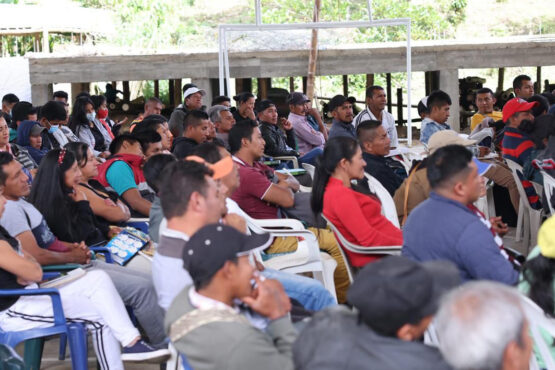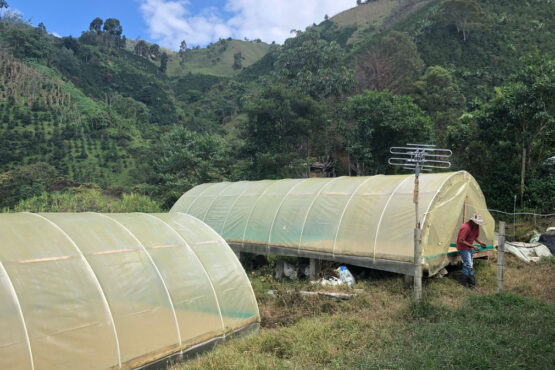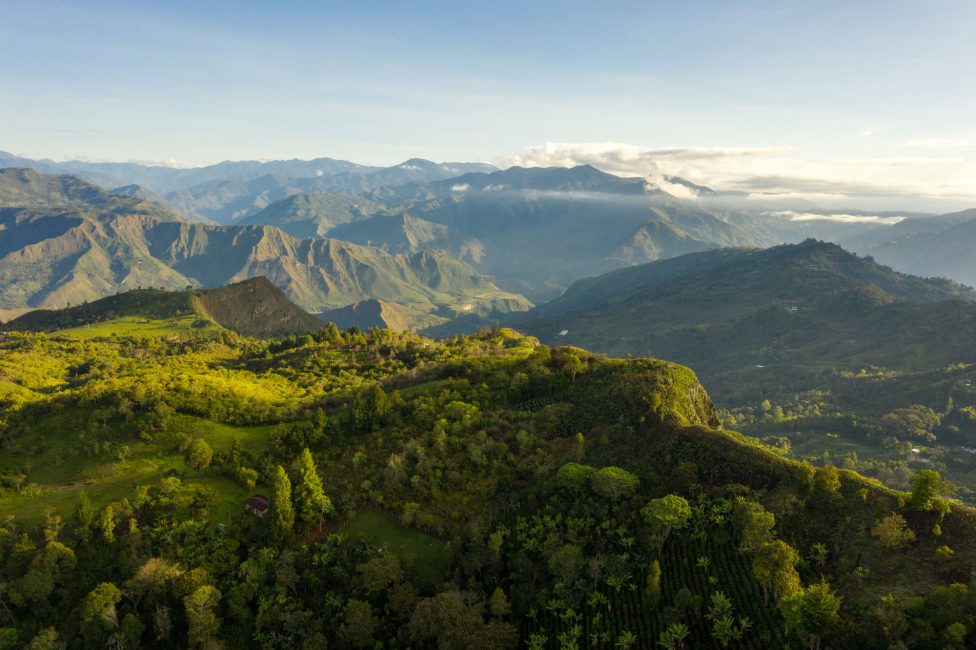San Francisco
Strawberry, plum and red grape, with a syrupy body and lingering florals. Bright and vibrant.
This coffee was produced by Robinson Pillimue (pictured above) on his small farm, San Francisco, located near the town of San Antonio, in the municipality of Inzá in the state of Cauca, in Colombia’s south.
San Francisco is a small farm, – just 1.5 hectares in size – located at 1,900m above sea level, in the steep, rugged hills that surround San Antonio. Robinson lives on the farm with his family, where they also look after a variety of farm animals. The couple take great care in what they feed their animals, as their manure is used as part of their fertilisation program.
Robinson is one of the leading producers of quality coffee in Inzá, a passion that runs in the family. He is the son of Maria Rosa Oidor, of El Nogal, who leads the community’s efforts in organic farming and the introduction of rare varieties. Robinson is involved with his mother in this endeavour, and helps our export partner Pergamino manage the community bio-factory that provides organic fertilisers to producers at cost price. This project was founded by Pergamino and a number of contributing roasters from around the globe, and services any producer that wants to implement a mixed fertilisation program, whether they have already been certified or not.
Like most farms in the region, San Francisco is mostly planted with the Caturra variety, which was the most popular variety during the 1970s and 1980s when most local farms were established. In recent years, Robinson has also introduced Chiroso, a newly identified variety that has become recognised internationally for its exceptional cup quality. The variety was ‘discovered’ in Urrao (in Colombia’s state of Antioquia), where it was initially thought to be a mutation of the Caturra trees that have been thoroughly propagated in this area. Chiroso went on to be cultivated for its resilience to the cool climate of Urrao, and is now being celebrated for its complex and floral cup profile, which attracts higher premiums from specialty buyers. More recent DNA studies done on the variety have shown Chiroso to be an Ethiopian landrace variety (similar to the famous Gesha variety), though it is still unclear how it ended up in Colombia.
The town of San Antonio has breathtaking views of Colombia’s highest volcano, Nevado del Huila, which sits at the point where the states of Huila, Tolima and Cauca meet. The rich, volcanic soil of the area makes it ideal for agriculture and contributes to the excellent cup quality of coffees grown and processed here. Cool overnight temperatures result in dense beans, which are notable for their sweetness and complexity. Lower temperatures and high rainfall also influence processing techniques, with longer ferment and drying times being necessary.
ABOUT INZÁ
The municipality of Inzá is located in the corner of the state of Cauca, bordering with Tolima and Huila and looking out to the west over the Pacific Ocean. This region has excellent conditions for growing high-quality coffee, with high elevations and rich volcanic soil. The plateau has very stable climate year-round thanks to its proximity to the equator and the surrounding mountains, which protect the coffee against the humidity of the Pacific and the trade winds from the south. This region is an important source of water and wildlife, in addition to being prime coffee-growing land.
Coffee from Cauca has historically been very difficult to access due to the region’s isolation and instability. For many years this part of Colombia was under the control of Colombia’s notorious rebel group, the FARC, and as a result, it was unsafe and violent. Since 2012, safe access to this region has been possible as a result of peace talks between the national government and the rebels. Thanks to these efforts, more and more stunning coffees from small producers in the region have become accessible.
Our export partners for this coffee, Pergamino, have worked hard commercialise specialty-grade coffee throughout Cauca, and have uncovered some stunning coffees and very dedicated producers in the process. They work closely with the producers to give them feedback on their coffees (provided by Pergamino’s expert team of cuppers) and provide top up payments when the coffee is sold at a higher premium.
Head here to learn more about the work of Pergamino.
HOW THIS COFFEE WAS PROCESSED
The coffee in this lot was selectively hand-harvested, with most labour being provided by Robinson and his family. It was processed using the washed method at the farm’s ‘micro-beneficio’ (mill).
The coffee was pulped using a small manual or electric pulper and then placed into a fermentation tank without water, where it was fermented for 48 hours and then washed using clean water from nearby rivers and streams.
The coffee was then carefully dried (over 10–18 days) on a concrete patio, which is covered by a greenhouse-style canopy that acts to protect the coffee from the rain and prevent condensation dripping back onto the drying beans. The greenhouses are constructed out of plastic sheets and have adjustable walls to help with airflow, and temperature control to ensure the coffee can dry slowly and evenly.
Once dry, the coffee was delivered to Pergamino’s warehouse in Medellín, where it was cupped and graded. Once approved, coffee rested in parchment until it was ready for export.
